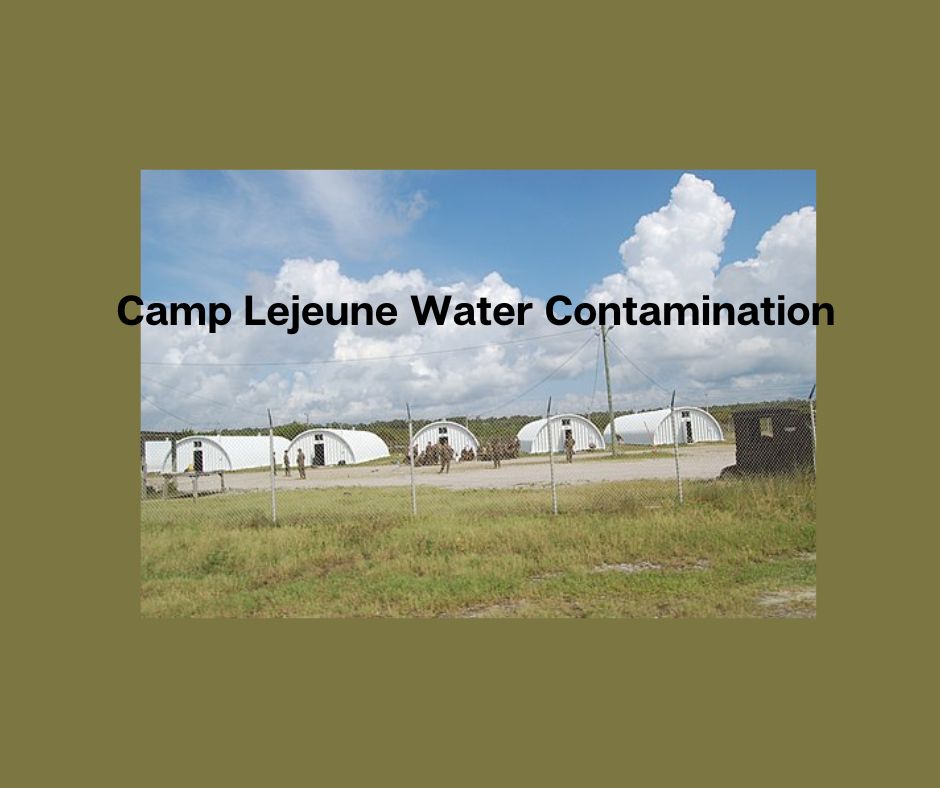Health Impacts and Presumptive Disabilities Linked to Camp Lejeune Water
The Camp Lejeune water contamination crisis stands as a sobering reminder of the profound impact that environmental hazards can have on the lives of veterans and their families. The hazardous chemicals that tainted the base’s water supply have left a trail of devastating health impacts, leading to the recognition of presumptive disabilities associated with the toxic exposure.
Health Impacts of Contaminated Water
The health impacts resulting from exposure to the contaminated water at Camp Lejeune have been extensive and alarming. The volatile organic compounds, including trichloroethylene (TCE) and perchloroethylene (PCE), have been linked to a range of severe health conditions:
- Cancers: Perhaps the most concerning health impact is the heightened risk of various types of cancers. Studies and epidemiological evidence have established a clear connection between the chemicals in the water and an increased incidence of cancers such as leukemia, breast cancer, kidney cancer, and bladder cancer.
- Neurological Disorders: Exposure to toxic substances like TCE has been associated with neurological disorders, including Parkinson’s disease and other movement disorders. These conditions can have profound effects on an individual’s quality of life and overall well-being.
- Reproductive Issues: Contaminant exposure during pregnancy has been linked to adverse reproductive outcomes, including miscarriages, stillbirths, and birth defects. The long-lasting impact on families and the emotional toll of such outcomes cannot be overstated.
- Immune System Dysfunction: The toxic chemicals in the water have the potential to disrupt the immune system, making individuals more susceptible to infections and other illnesses.
Presumptive Disabilities and Recognition
The link between the contaminated water at Camp Lejeune and the subsequent development of specific health conditions has prompted the recognition of presumptive disabilities among veterans who served there. Presumptive disabilities acknowledge that certain medical conditions are presumed to have originated during military service, easing the burden of proof for veterans seeking benefits and support.
- Cancer: The VA acknowledges a range of cancers as presumptive disabilities for veterans exposed to the contaminated water at Camp Lejeune. These include leukemia, multiple myeloma, non-Hodgkin lymphoma, and several others. The presumption recognizes that these cancers are more likely to have been caused by the toxic exposure.
- Neurological Disorders: Conditions like Parkinson’s disease and other parkinsonian syndromes are also recognized as presumptive disabilities for Camp Lejeune veterans. This recognition reflects the mounting scientific evidence linking these disorders to exposure to the hazardous chemicals.
- Birth Defects: The VA acknowledges certain birth defects in the children of Camp Lejeune veterans as presumptive disabilities. This recognition is a testament to the intergenerational impact of the water contamination crisis, underscoring the need to support both veterans and their families.
Seeking Support and Advocacy
While the recognition of presumptive disabilities is a significant step forward, navigating the benefits and support system can still be complex and challenging for veterans and their families. The process of filing claims and providing evidence of exposure requires careful attention to detail and a thorough understanding of the requirements.
Veterans’ advocacy groups have played a pivotal role in raising awareness about the health impacts of Camp Lejeune’s contaminated water and advocating for the rights of affected individuals. These groups provide essential resources, information, and support to help veterans access the benefits and care they deserve.
The health impacts stemming from the Camp Lejeune water contamination crisis are a stark reminder of the enduring consequences of environmental hazards on our veterans. The recognition of presumptive disabilities offers a glimmer of hope and relief for those who have suffered from exposure to toxic chemicals during their service. As we move forward, it is crucial to continue advocating for improved medical care, support services, and research to better understand the long-term effects of the contamination. By honoring the sacrifices of Camp Lejeune veterans and their families, we can work towards a future where the well-being of those who serve is safeguarded with the utmost care and compassion.








This 1976-1977 Camp Lejeune ( U.S. Marine Corps) Veteran had living quarters on Camp Geiger, N.C. during the same time period. In January 1977 to April 1, 1977 this man went to the Camp Lejeune Swimming Pool for instructions for ‘Advanced Lifesaving and Water Safety’ by the American National Red Cross. During that time period in this swimming course this U.S. Marine and many U.S. Marine lost their Hearing after swimming in this Camp Lejeune Contaminated Water. Each man went to the U.S. Navy Doc. to get approved for a U.S. Navy prescription for his Ear infection in their name. For 7 to 10 days, each U.S. Marine taking this prescription Ear Medicine had to stay out of the Camp Lejeune Swimming Pool and keep his ear or ears clean until he could hear again. In 1977, after passing this Swimming Course at a Swimming Pool, Headquarters Marine Corps contacted the H & S Company, 3rd Battalion, 8th Marines,2nd Marine Division (REIN) at Camp Lejeune asking for an Certified Swimming Instructor(W.S.S.I.) to teach ‘Basic Swimming’ to many U.S. Marines in this Battalion and other U.S. Marines. This U.S. Marine ( Frank McDonald) signed numerous U.S. Marines Card ( their name) passing ‘Basic Swimming’ for the U.S. Marine Corps requirements at Headquarters Marine Corps in Washington, D.C..
On 10/30/2023, the Department of Veterans Affairs ( Veterans Benefits Administration Regional Office) in Des Moines, Iowa has denied this older U.S. Marine a service-connection for Hearing loss and a service-connection for Tinnitus after completing this Swimming Course in a 1977 Camp Lejeune swimming Pool and teaching many more U.S. Marines to pass the Basic Course for Swimming.
Recently, this man found out the VA Employees( processed my VA application for compensation) never requested the 1976-1977 U.S. Marine Corps Medical Records and all the U.S. Navy prescriptions dispensed for correcting my Hearing loss while in the U.S. Marine Corps at Camp Lejeune, N.C.. The VA has not submitted scientific and medical evidence from U.S. Veterans (stationed from August 1,1953 to December 31, 1987 at Camp Lejeune, N.C.) to establish a presumptive of service-connection between exposure to the Camp Lejeune Water for service-connection for Hearing loss.
See— 38 CFR 17.00 ( October 3, 2024) Hospital and Medical Services for Camp Lejeune Veterans. —-Covered Illness or condition (XIV) Neurobehavior Effects.–Hearing loss is diagnosed by an Audiologist at the Department of Veterans Affairs Medical Center (VAMC), so why can’t the Department of Veterans Affairs do a Research study to prove the Camp Lejeune Contaminated Water cause this Hearing loss in U.S. Veterans.